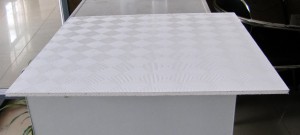Effects of HPMC on Gypsum Products
With the rapid development of the construction industry, people have increasing demands for new building materials. Due to the increase in people’s awareness of environmental protection and the continuous improvement of construction efficiency, cementitious materials and gypsum products has made rapid development. Now the most common gypsum products are gypsum plaster, adhesive plaster, embedded gypsum and tile adhesives.
Gypsum plaster is a kind of good quality plastering material for interior walls and ceilings. With the use of it, the wiped wall surface is smooth and delicate, cannot afford to powder and is firmly bonded with the substrate, without cracking or shedding phenomena. And it has the function of fire prevention.
Adhesive plaster is a new adhesive for construction light boards, a sticky material with the gypsum as the base material and made by adding a variety of additives. It applies to the bonding between all types of inorganic building wall materials. It is non-toxic, tasteless, and has early, strongly, and rapidly solidified as well as firmly bonding characteristics, so can be used as the supporting material in building panels and construction.
These gypsum products have a series of of different functions. The gypsum and related fillers work. In addition, the key issue is that the addition of the cellulose ether additive plays a dominant role. Because gypsum can be divided into anhydrite and hemihydrate gypsum, and different types of gypsum have different effects on properties of the products, so thickening, water retention and retarding properties determine the quality of gypsum building materials.
The common problems in these materials are hollowing cracks and not reaching the initial strength. In order to solve this problem, the compound of the model of celluloses with the retarder can be chosen for use. In this regard, hydroxy propyl methyl cellulose 30000-60000cps is generally chosen, and the addition amount is 1.5% – 2%. In it, the cellulose plays a main role in water retention, retarding and lubrication. However, in this process, the cellulose ether alone as the retarder cannot reach the effects, and the mixing use with the citric acid retarder will not affect the initial strength.

